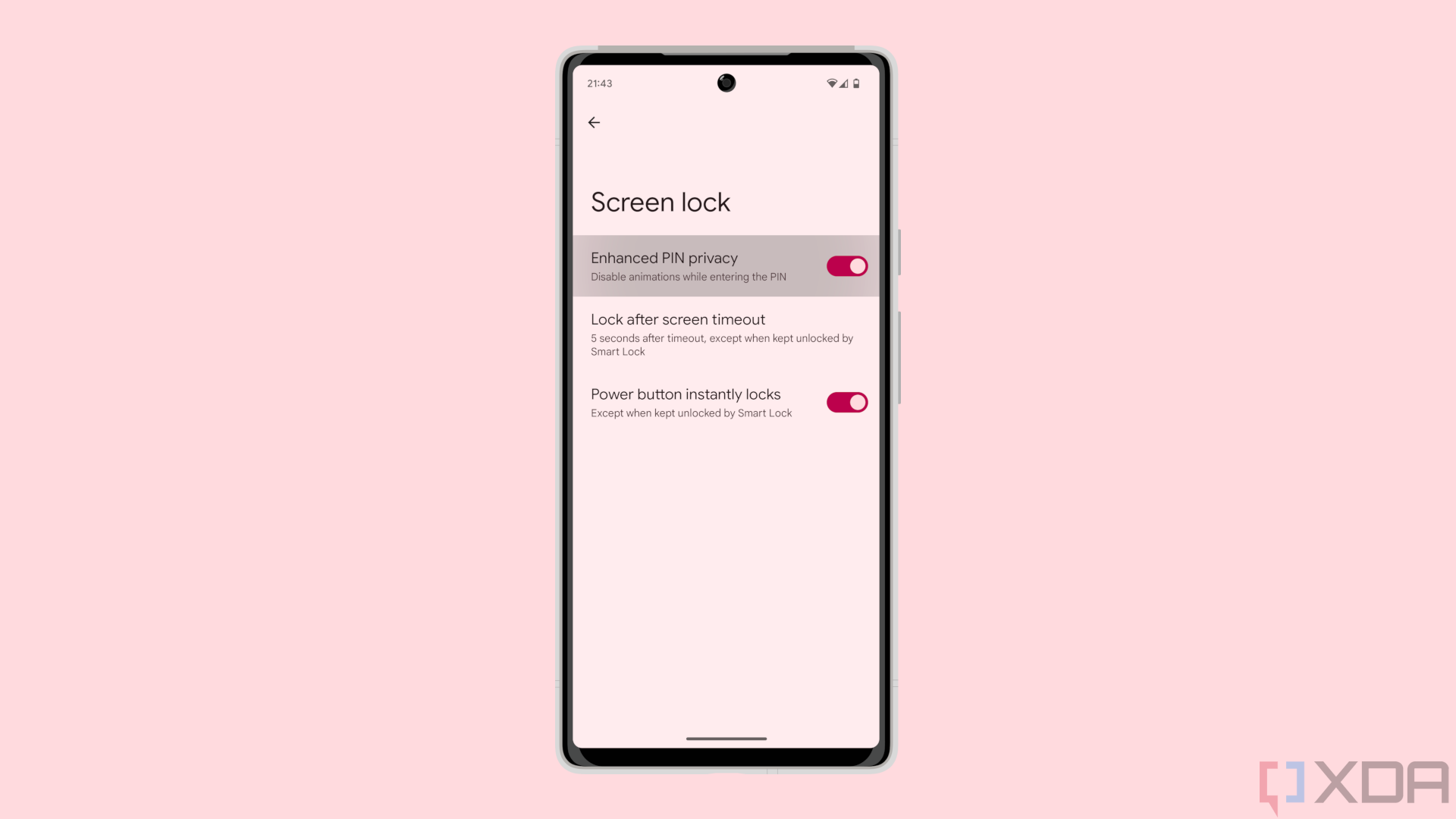Google just released the second beta for the upcoming Android 13 QPR3 release this June, but the new release doesn’t offer a whole lot in terms of new features and improvements. Since QPR3 will be Android 13’s final maintenance release, it mainly focuses on stability and bug fixing changes. However, some minor quality-of-life improvements do make their way into QPRs, and Android 13 QPR3 is no different. Given that few OEMs outside of Pixel ever merge QPRs, these quality-of-life improvements will become available on devices from other brands in the next major Android release, ie. Android 14. And in Android 13 QPR3 Beta 2, we spotted a new feature that’ll make its way to other devices on Android 14: Enhanced PIN privacy.After booting up Android 13 QPR3 Beta 2 on a Pixel 6, we spotted a new “enhanced PIN privacy” toggle under Settings > Security & privacy > Device lock. The description for this toggle reads “disable animations while entering the PIN”, meaning that the animation that normally plays when you tap any number on the keyguard won’t be shown. This will make it harder for shoulder surfers to watch you enter your PIN, because the Android lock screen won’t show an obvious visual cue for each number you tap.Here’s a video demonstrating this new enhanced PIN privacy feature. This video was recorded from another device because Android applies FLAG_SECURE to the keyguard window, preventing screenshots and screen recordings from being taken. Special thanks to Nail Sadykov for sharing this video with us!
Shoulder surfing is a common social engineering attack used to obtain access to users’ devices, as many people enter their PIN while in public places. A recent report from The Wall Street Journal showed how shoulder surfers could gain nearly full access to a user’s Apple or Google Account simply by observing their phone’s unlock code and then swiping their device. Making it harder for shoulder surfers to observe PIN entry will make it harder for them to subsequently access a user’s Apple or Google Account, hopefully.Enhanced PIN privacy isn’t the only new lock screen-related improvement coming in Android 14. We previously spotted a new feature called “auto-confirm correct PIN” that allows you to bypass tapping Enter in order to unlock your phone. That feature is not available to users yet, unlike the new enhanced PIN privacy toggle we spotted in Android 13 QPR3 Beta 2. Speaking of which, it’s likely that this new enhanced PIN privacy toggle will appear in the next Android 14 preview release, which is expected to be Android 14 Beta 1. Android 14 Beta 1 will likely land in early April, and when it does, we’ll be covering the new features and changes extensively.

